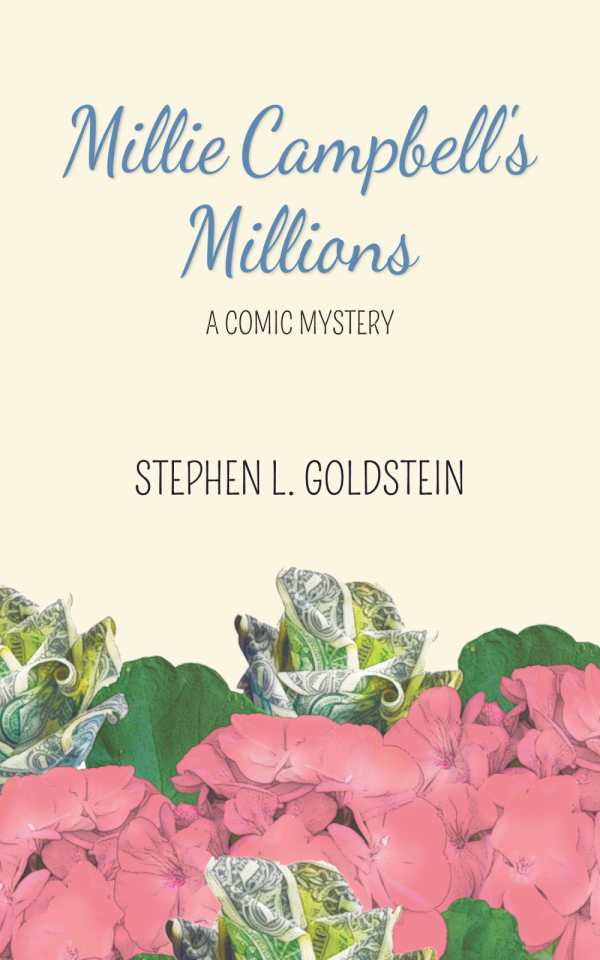
Millie Campbell's Millions
A Comic Mystery
This whimsical story offers a gentle reading experience for a lazy afternoon.
Billed as a comic mystery, Stephen L. Goldstein’s short novel, Millie Campbell’s Millions, has a whodunit core and moves along smoothly chapter to chapter. At heart, it’s a whimsical observation of the human condition, a map of the potholes that litter the road to riches.
Millie Campbell may have millions of dollars, but she prefers life in Paradise Trailer Park. Her little “tin can,” as she calls it, is comfortable, and she has Bertha, “my absolute best friend.” Bertha’s a recliner chair. Millie never married, and, sadly, she rarely sees Alice and Carl, the children of her only sister. Now Millie’s off to the city’s most prestigious law firm, to write her will. She has $15 million to bequeath to her niece, nephew, and grandniece.
Goldstein’s Millie is the typical little old lady, though she’s only seventy-five years old, a time when many seniors are still vital and active. Millie’s main goal is bestowing her money, which makes her a bit one-note, but she has an engaging backstory, with her fiancé-to-be killed during World War II. After Goldstein disposes of her in an unlikely, albeit benign, fashion, the central mystery is how Millie got her millions in the first place.
Other characters—her niece, Alice; her nephew, Carl; and their spouses—are more one-dimensional. Alice accidentally learns of the inheritance during a spur-of-the-moment visit, and the four descend into a monetary feeding frenzy. Whether or not it’s believable that a neglectful niece might impulsively check on an aunt—“something told me to come see you”—the narrative then hits high speed as Alice and Carl work to outdo one another—with trips to Paris and Disney World—in currying Millie’s favor. The greed-fest is allayed only by the appearance of Jennifer, Alice’s daughter, who is included as the voice of reason rather than a character instrumental to the plot.
The setting is hazy, but stereotypically American middle class, and the plot is oftentimes comically hyperbolic. The grammar and syntax are seamless; however, there’s too much interior dialogue, italicized in the text—the sort of self-talking people carry on when saying one thing and meaning another. While some asides are wry, even sardonic, it’s overdone and distracting, which slows the pace.
While the only mystery here is where Millie got her millions, this is a gentle, whimsical, and easily readable commentary on the human condition to while away a lazy afternoon.
Reviewed by
Gary Presley
Disclosure: This article is not an endorsement, but a review. The publisher of this book provided free copies of the book and paid a small fee to have their book reviewed by a professional reviewer. Foreword Reviews and Clarion Reviews make no guarantee that the publisher will receive a positive review. Foreword Magazine, Inc. is disclosing this in accordance with the Federal Trade Commission’s 16 CFR, Part 255.
